Our Work
The evaluative process is an intentional and systematic process of collecting and analyzing quantitative and qualitative data to inform learning, decision-making, and action. Evaluation is a powerful tool for maintaining internal and external accountability to an organization’s mission and service recipients.
At S&A, our philosophy is that evaluation helps determine what is working well, or not working well, within a program/organization and seeks to determine why so that changes can be made for continued progress and improvement.
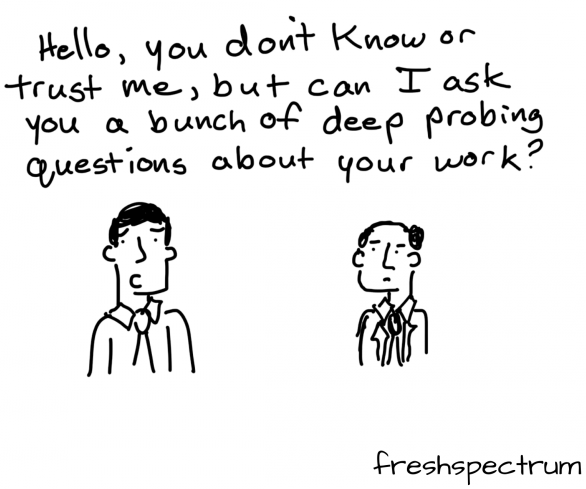
Featured Products
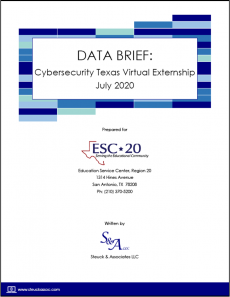
Cybersecurity Texas Virtual Externship
Client: Education Service Center, Region 20
Connecting Education with Business & Industry

S&A is a member of the Alamo STEM Workforce Coalition (ASWC), a group of educators and workforce professionals who collaborate to provide rich externships to STEM teachers, career & technical education (CTE) teachers, adult education and literacy instructors, counselors, and administrators.
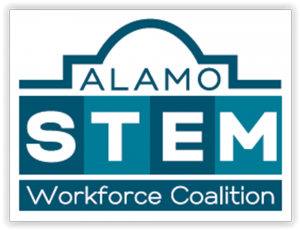
Dr. Steuck serves at the project technical and evaluation leads for the Externships for Teachers project, which provides professional development sessions in which industry experts and educators interact to bring more real world examples of the use of math and science into the instruction the teachers provide to their students.
Attrition/Retention Model
Dr. Steuck and colleagues are researching and synthesizing factors which affect attrition/retention of students in STEM education opportunities. They have organized multiple dropout and retention factors into clusters based on their experience with federally- and state-funded education grants.
The model includes:
1) quality of the STEM experiences,
2) self-beliefs, and
3) personal context
The current model is a synthesis of experience gained in evaluating STEM grants and STEM education research literature. The attrition/retention model has implications for planning, proposing, and managing education projects; researching retention of students in STEM education projects; and evaluating STEM projects. The model applies to evaluation during the development of program theory, research questions, and data collection instruments. For example, Dr. Steuck developed an exit survey and interview protocol for collecting information about middle school students who attritted from a NASA-funded STEM education project.

Education Research & Development

Examples of Dr. Steuck’s long-term contributions to education research:
Dr. Steuck has been active in conducting research throughout his professional career. He began investigating learning and memory topics as an undergraduate in the Psychology Department at the University of Wisconsin-Madison. He then began investigating children’s learning with the use of pictures and imagery and children’s understanding of their own learning and memory (metacognition). As a member of the Air Force Research Laboratory (formerly Armstrong Lab), Dr. Steuck was part of a 10-year project designing, implementing, and evaluating intelligent tutoring systems in math, writing, and biology in high school settings.
- Front End Analyses
- Educational software design
- Technology implementation
- Project and technology evaluation
- Fundamental Skills Training (FST) Project
- Immersive Environments for Physics Instruction
- Immersive Environments for Nutrition Education
Our Work

The evaluative process is an intentional and systematic process of collecting and analyzing quantitative and qualitative data to inform learning, decision-making, and action. Evaluation is a powerful tool for maintaining internal and external accountability to an organization’s mission and service recipients.
At S&A, our philosophy is that evaluation helps determine what is working well, or not working well, within a program and/or organization and seeks to determine why so that changes can be made for continued progress and improvement.
Featured Products
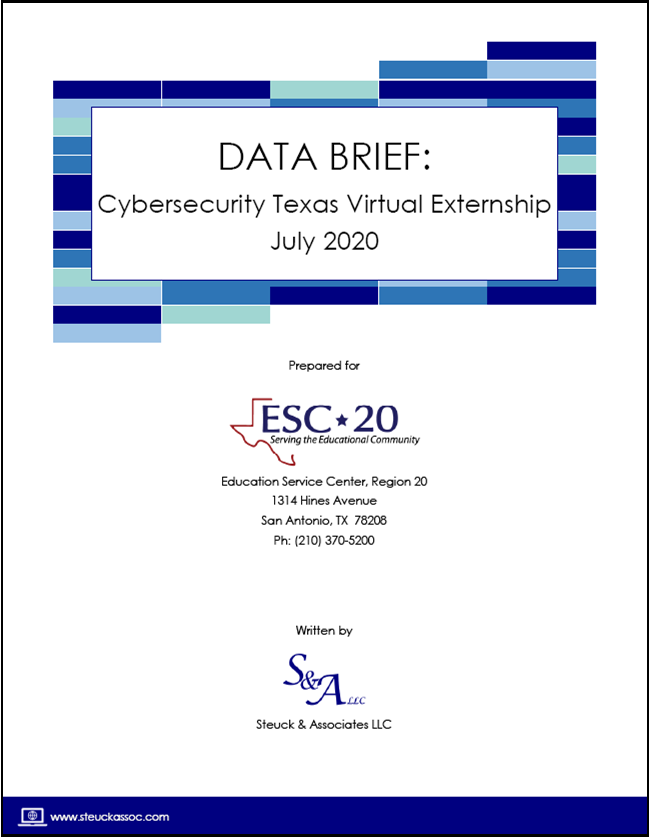
Cybersecurity Texas Virtual Externship
Client: Education Service Center, Region 20
Connecting Education with Business & Industry

S&A is a member of the Alamo STEM Workforce Coalition (ASWC), a group of educators and workforce professionals who collaborate to provide rich externships to STEM teachers, career & technical education (CTE) teachers, adult education and literacy instructors, counselors, and administrators.
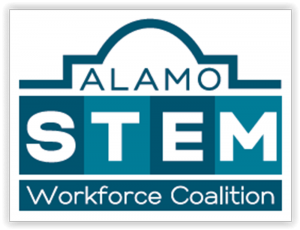
Dr. Steuck serves at the project technical and evaluation leads for the Externships for Teachers project, which provides professional development sessions in which industry experts and educators interact to bring more real world examples of the use of math and science into the instruction the teachers provide to their students.
Attrition/Retention Model

Dr. Steuck and colleagues are researching and synthesizing factors which affect attrition/retention of students in STEM education opportunities. They have organized multiple dropout and retention factors into clusters based on their experience with federally- and state-funded education grants.
The model includes:
1) quality of the STEM experiences,
2) self-beliefs, and
3) personal context
The current model is a synthesis of experience gained in evaluating STEM grants and STEM education research literature. The attrition/retention model has implications for planning, proposing, and managing education projects; researching retention of students in STEM education projects; and evaluating STEM projects. The model applies to evaluation during the development of program theory, research questions, and data collection instruments. For example, Dr. Steuck developed an exit survey and interview protocol for collecting information about middle school students who attritted from a NASA-funded STEM education project.
Education Research & Development

COMPETENCIES
- Front End Analyses
- Educational software design
- Technology implementation
- Project and technology evaluation
- Fundamental Skills Training (FST) Project
- Immersive Environments for Physics Instruction
- Immersive Environments for Nutrition Education
